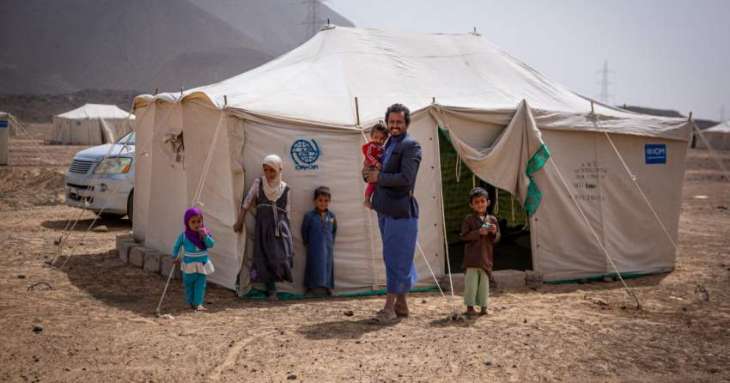The international community has stopped responding to the refugee crisis in Yemen, while aid to internally displaced persons fleeing the war has dropped to a minimum, the chief executive officer of the management of internally displaced persons in Marib province, Seif Musna, said on Friday
MARIB (Pakistan Point News / Sputnik - 12th November, 2021) The international community has stopped responding to the refugee crisis in Yemen, while aid to internally displaced persons fleeing the war has dropped to a minimum, the chief executive officer of the management of internally displaced persons in Marib province, Seif Musna, said on Friday.
During the war in Yemen, which began with the seizure of power by the Ansar Allah (Houthis) rebels in 2014, more than 1.2 million people from all over the country fled to the north-eastern province of Marib.
"Since 2014, 62% of the total number of internally displaced persons in Yemen have fled to the province of Marib. In the past two months alone, 94,000 people have been forced to leave their homes in the southern suburbs of Marib. Unfortunately, international humanitarian organizations and UN agencies have largely scaled down their work in the provinces, they provide assistance slowly and in very small volumes not in accordance with the necessary needs," Musna told Sputnik.
According to Musna, 10-11% of refugees in the province of Marib live in 161 camps, the largest of which is home to 275,000 people, the rest settled in villages near the capital city and in the city itself. Over the past two months, due to the aggravation of the confrontation, the authorities of Marib had to open 19 more camps including four camps this week. People who fled from the war need food aid, about 80 thousand families suffer from food shortages, 40-50% of them do not have even the most basic things.
Since February 2020, the Houthi rebels have been conducting a large-scale military operation to seize the oil-rich Marib province, which is an important political, military and economic center that hosts the defense ministry's headquarters. Over the past two months, they managed to capture five districts, which resulted in a new exodus of the population to the refugee camps.
Heavy fighting for the Al Jawbah region, 40 kilometers from the camp, forced absolutely all families from this area to settle in tents in the desert instead of their homes.
"Currently, there are 1,500 families - about 7,500 people, they are given food, water, doctors from the 'Doctors Without Borders' come twice a week, but while registration of all new arrivals and their needs is underway, the camp continues to accept new people every day," Salah Muhammad, the coordinator of assistance to internally displaced persons in the Al-Sumeya camp, which appeared a week ago, told Sputnik.
Coronavirus is not the most pressing problem for refugees suffering from water and food shortages, but cases of the disease have been detected in some camps.
"In this camp, tests for COVID-19 have not yet been done, there have been no cases of the disease yet. In other camps, there have been such cases," Muhammad added.
Yemen's conflict between government forces and the Houthis has been ongoing since 2014. The situation in the country was further complicated after Saudi Arabia joined the conflict on the side of the Yemen's government in 2015, launching air, land and sea operations against the Islamist rebel movement.




